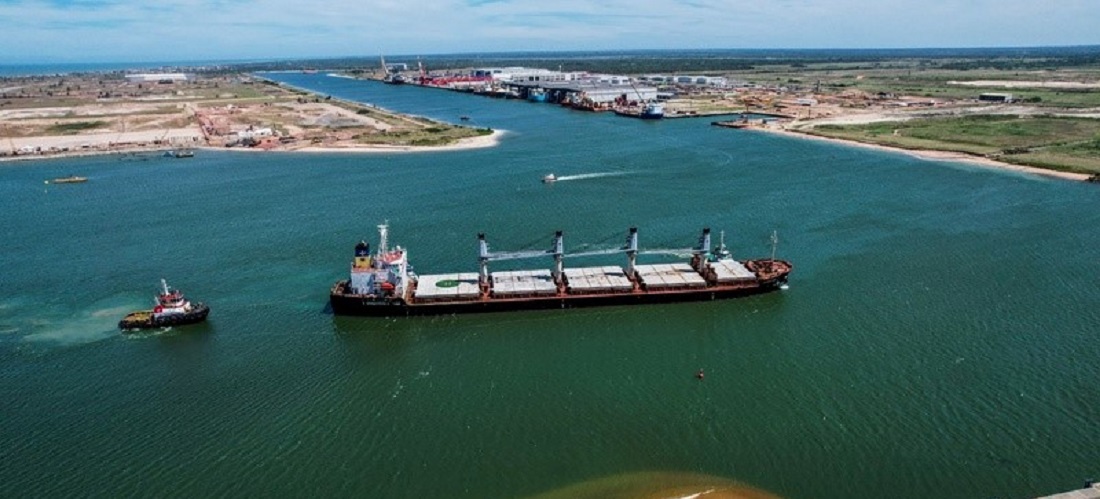
Açu Port Gains Dedicated Health Surveillance Structure
Apr, 17, 2024 Posted by Gabriel MalheirosWeek 202416
Starting this Wednesday, April 17th, Brazil’s Açu Port has a dedicated team from the National Health Surveillance Agency (ANVISA) to inspect and regulate the entry and exit of products subject to health surveillance at Açu. The Agency has officially expanded its face-to-face services in the port-industry area, ensuring faster inspections. ANVISA’s presence at the Port also allowed its inclusion in the list of ports authorized to issue the Vessel Health Certificate – CSE with the World Health Organization – WHO.
Until now, some of the processes involving inspections under ANVISA’s responsibility were carried out in Macaé, approximately 42 kilometers away by sea from Açu Port. Now, the Agency begins to provide face-to-face service at the complex, through shifts on scheduled dates, for inspections required by the 11 installed terminals and vessels docked at the port. The team will use two support rooms, one at T-MULT and another at Ferroport. Appointments will be made virtually by the vessels’ maritime agents, and services will be provided in person at the terminals.
The need to establish a permanent inspection service for the Agency in Açu was mainly due to the exponential increase in cargo in this port enterprise, which already has 22 companies installed.
In 2023 alone, 84.6 million tonnes were either loaded or unloaded at the port, a record driven by the expansion of T-MULT, which with quadrupled capacity, operates iron ore briquettes, solid bulk, project cargo; and also emerges as an important alternative for port activity in the field of agroindustry, with soy, corn, and salt – received via cabotage.
“Ensuring greater agility in inspections increases our competitiveness, making it easier for established companies and their customers and for T-MULT,” explains Vinícius Patel, director of the Port Administration of Açu Port. Furthermore, according to the director, it is also worth highlighting the contribution to reducing CO2 emissions, since fewer round trips for ships between Açu and Macaé for inspection result in lower fuel consumption, in line with the decarbonization goals in navigation.
Among the activities carried out by ANVISA in customs areas are documentary and physical inspection, risk analysis, sample collection, certification, and release.
For Bruno Araújo Rios, General Manager of Ports, Airports, Borders, and Customs Precincts at ANVISA, the new base in Açu will optimize processes and inspections. “The permanent structure will be essential to meet demands, which have increased in volume, along with the development of the port complex. We know the port’s size and potential and we are confident in this new phase,” reinforced Bruno Araújo.
-
Meat
Apr, 08, 2019
0
Brazil’s chicken and pork exports fall in March
-
Ports and Terminals
Jan, 21, 2022
0
Drug cartels force MSC to suspend intermodal operations in Brazil
-
Coffee
Nov, 25, 2022
0
Coffee: shipments from Brazil to total 2.154 mln bags
-
Grains
Jun, 01, 2021
0
Arco Norte ports share of grain exports more than doubles in 10 years


